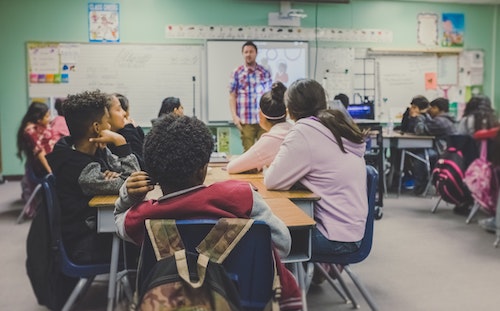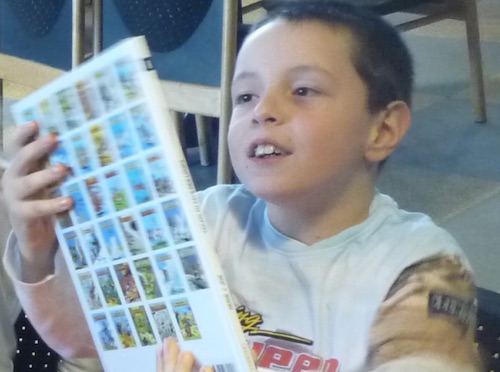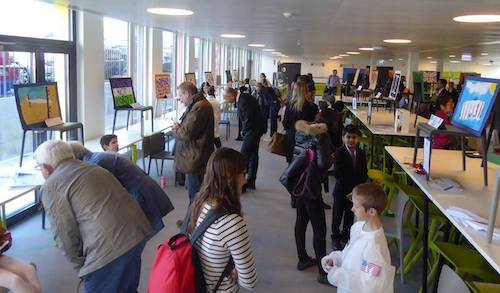
Local Teachers who Blog for knowitall.ch
Instead of asking teachers or staff from one particular school in the area, we've decided to host all of them under one heading.
We expect great things to happen on this page, so make sure to check often to read their stories, insights, explanations, and thoughts on education for children, adults, special needs, or extra-curricular.

by Katie Harwood, Haut-Lac International Bilingual School
Sometimes parents hesitate when faced with choosing between English or bilingual streams. Which will be best for their children?
This article is here to demystify that decision, as neither option is right or wrong. Both can suit any family. It just depends on what is best for their lifestyle and expectations of the future.
Why English?
- English is currently the world’s most connected language.
- It’s a language used for worldwide communication, so achieving competency or mastery is an incredible asset for anyone.
- English will open up a student’s future.
- Young students who are still early in their international school career will find that knowing English will be a boon when creating friendships. Older students who demonstrate a good level of English will most likely be more appealing to employers worldwide.
- International students whose families are often on the move may also benefit from focusing on learning solely in English, rather than beginning to learn French before moving on again. English will be the constant language in the lives of international school kids, so it is best for them to develop their skills in this language as fully as possible.
- Following the English programme may also benefit local and Swiss families, who wish to give their children a deep English immersion, so as to raise their level more quickly than would happen in public school. It will also benefit students who arrive with neither English nor French. Rather than learn two new languages right away, English will be the easier language to take on first. When they feel ready, students may always try the bilingual programme later.
A gentle introduction to bilingualism: If learning French feels like a very large task, the English stream can be an easier way to get started. Students will get a period of French a day in the primary and infant sections, and can take beginner French classes in secondary. By building their confidence slowly, they will know in time whether they’re ready and willing to transition into the bilingual stream or not.

by Katie Harwood, Haut-Lac International Bilingual School
As the weeks stretch on and we adapt to our live under COVID-19 isolation rules, children might be beginning to ask more questions about the situation – Why can’t we go back to school normally? When will this be over?
It is entirely normal that they show some apprehension as isolation continues. So how can parents talk to their children about this in a way that comforts them and addresses their questions fairly?
Ask them how they’re doing every once in a while
Sit your child down and talk them through what’s going on, to see how much they know and understand of the situation. By asking the simple question ‘how are you doing’, you are giving your child the chance to say as little or as much as they would like. You do not need to delve deeply into it if your child doesn’t want to, but you are letting them know you’re there and showing them that the door is open should they need it.
Listen and respect their emotions
It might seem like telling a child that everything is fine will be enough to bring them peace. However, that could stop them from digging deeper and explaining how they are really feeling. Instead, listen to everything they have to say and tell them that it’s okay, even normal, to have these feelings. They will come and go like trains into a station, but you will be there for them to talk about it whenever they need to.
Avoid exposing them to too much of the news, but don’t deny anything
The news is a steady cycle of figures and statistics, and constant exposure to it can be anxiety-inducing for anybody. If your child wants to be updated on the situation, don’t hide anything from them. However, there is also no need to play the news in a constant stream in the background.
Mitigate your own response
Children are very sensitive and intuitive. If you are particularly anxious or affected by what is happening (which is entirely understandable), try to maintain a calm outward demeanour around children or they might adopt and reflect your emotions.

By Valérie Fournet, LCIS
In a bid to develop relationships and to foster a real sense of 'family' and community within La Côte International School's existing House system in the Secondary school, we restructured our pastoral system and implemented the Vertical Tutoring model.
Peter A. Barnard, author of "Vertical Tutoring" writes: Mixed-age tutor groups are an ideal preparation for the development of student leadership and mentoring.
The LCIS House structures remained unchanged, our Homerooms were modified to include students from mixed age groups, as opposed to a more traditional Homeroom structure determined exclusively by academic year groups.
Each vertical Homeroom now comprises of 15-20 students from different academic groups in Lower or Upper Secondary. Each of the four Houses is led by a Head of House, whose important role involves developing a dynamic and exciting team spirit and fostering healthy competition.
Healthy competition is an important part of our Vertical Tutoring. When students compete for their House, there is a genuine sense of belonging and a desire to be part of the team.
We believe that introducing the new Vertical Tutoring system will foster a friendlier, more cohesive and supportive social environment, which would provide students with leadership opportunities.
For example, students from all Homerooms cooperate and work together on a number of House Challenges throughout the year, and this enables our House captains to guide and lead younger students.
The feedback and results so far have proven very positive and the implementation of the new Vertical Tutoring system has resulted in a unified community within our school community in which all the students are proud to belong and where students of different age groups can get to know each other better.

By Mark O'Brien, La Côte International School
The International Primary Curriculum, commonly known as IPC, is a comprehensive, thematic and creative curriculum with specific learning goals for every subject. What makes the IPC stand out from other curricula is the strong focus on developing students as global citizens and becoming internationally-minded. International learning goals are unique to the curriculum and help students to develop an increasingly sophisticated national, international and intercultural perspective. IPC is now taught to over 1,000 students across 90 countries around the world, with many opportunities for students and teachers to share their experiences and learning.
The IPC has been designed to ensure rigorous learning, whilst providing both students and teachers learning opportunities that are exciting, meaningful and active. Through the IPC, the following subjects are covered:
- Geography
- History
- Science
- Art
- Technology
- Computing
- Physical Education
- Music
- Society
- International Learning
The curriculum is split into 3 Mileposts:
Page 2 of 2








